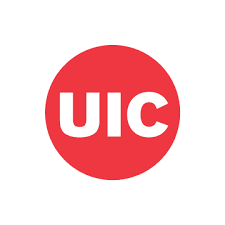The Health Informatics field is a rapidly growing niche within the medical and health professions. So, what does health informatics mean? Quite simply, it’s the management, communication, and protection of patient healthcare information and the systems that store and disseminate it. Health informatics involves information technology, research, medical education, specific ethical and legal frameworks, and much more.
What is the Role of Health Informatics?
Health informatics professionals utilize knowledge and skills in areas such as medical coding, information systems, and IT to gather, analyze, and store the data in a secure and organized manner. Some of the job titles that health informaticists may have are data analyst, IT consultant, health informatics director, or health information resource manager.
It is not uncommon for health informatics professionals often work as managers, and the typical entry-level education for these roles is a bachelor’s degree and passing the Registered Health Information Administrator (RHIA) exam, which Bachelor’s in Health Information prepare you to sit for.
What is the Difference in Health Informatics and Health Information Management?
Most people in these roles work in public or private healthcare facilities, including hospitals, nursing homes, group medical practices, and much more. While a bachelor’s is the typical entry-level education, many students go on to earn a master’s degree.
A degree in health information management is most often earned at an associate’s or bachelor’s level. Meanwhile, health informatics is more typically earned as a bachelor’s or master’s degree.

Health information management programs usually include IT courses dealing with medical records, coding, or disease classification; health care systems which include medical terminology as well as anatomy and physiology; and courses about people and processes such as project management, speech, and communications.
Health informatics programs also include IT courses but are often dealing with network architecture and hardware-software integration. HI programs will also have courses in health care systems which are often informatics, health care finance, and health care organization.
Working in health information management (HIM), typical duties performed include coding information for research and reimbursement, organizing and managing patient data, and making sure the organization you work for is in compliance with governmental regulations. With a HIM degree, you may qualify to work as a compliance officer, data quality manager, medical records manager, or HIM director.
Duties that are performed by those working in health informatics revolve more around developing the information systems which improve the overall quality and effectiveness of health care. In addition to the job titles mentioned previously, health informatics professionals may also hold positions as a systems analyst, health care chief information officer, or director of clinical informatics.
While there is a difference between health informatics and health information management, they share a strong relationship and can work hand-in-hand in some of the same areas. You may notice that many of the degrees in our ranking are bachelor’s degrees in health information management, which will prepare you to work as a manager or bridge professions connecting administrative, clinical, and other aspects of a health organization through information systems. Some students who obtain a bachelor’s degree in health information management may go on to get their master’s degree in health informatics.
In this ranking, we’ve explored the best online bachelor’s degrees in health informatics as well as health information management in order to provide students with the best options in this area of study.
Methodology
We have ranked the best bachelor’s degrees for health informatics and health information management by looking at each school which offers the program. These are then ranked by affordability, student opinion, graduation rate, and freshman retention rates, each contributing 25% to the final ranking score used to compare programs. For a detailed look at our methodology, see below:

1) Indiana University – Bloomington

Indiana University is a multi-campus public university. It was founded in 1820. It has more than eight campuses, but its main two are in Indianapolis and Bloomington. Over 43,700 students attend Bloomington, which has a 17:1 student-to-faculty ratio. It offers a wide array of degrees at all levels in disciplines including Business, Public Health, Nursing, Law, Education, Parks and Recreation, Health Management and much more. The school is known for its robust research, embodied by its Indiana University Research and Technology Corporation (IURTC). The IURTC is a non-profit agency that works with IU faculty and researchers to commercialize their discoveries and inventions. Since 1997, university clients have been involved with over 1,800 inventions, nearly 500 patents, and 38 start-up companies. Indiana athletics (the Hoosiers) include 600 male and female student-athletes on 24 varsity teams in NCAA Division 1. Notable alumni include political scientist Keith Fitzgerald, journalist Tony Aiello, writer Suzanne Collins, actress Sarah Clarke, and many others.
IU offers an online B.S. in Health Information Management. Students will learn the ins and outs of maintaining, collecting, interpreting, analyzing, and protecting data that is used to research and offer effective health care. Its curriculum covers medicine, management, finance, information technology, and law. Students will build skills in project management, problem-solving, data security, revenue management, and auditing. You’ll be prepared to work in private and public organizations advocating for patients, teaching classes, consulting private industry, analyzing health data, and much more. This program requires 120 credit hours but up to 64 of them can be transferred in from a two-year college, and up to 90 can be transferred from a 4-year college or university. Sample courses include Medical Terminology, Healthcare Law, Ethics and Information Release, Database Design for Health Information Management, and so much more.
2) University of South Carolina

The University of South Carolina is a public research university based in Columbia, South Carolina. It was founded in 1801 and is the flagship school in the University of South Carolina System. SC offers more than 350 programs of study, giving students access to bachelor’s, master’s, and doctoral degrees through fourteen degree-granting colleges and schools. It’s known for its professional programs, which include business, engineering, law, medicine, pharmacy, and social work. Over 34,700 students attend SC, which has a 17:1 student-to-faculty ratio. The South Carolina Gamecocks compete in 19 varsity sports in NCAA Division 1. They’ve had great success in baseball, football, women’s outdoor track & field, and women’s equestrian. Notable alumni include U.S. Senator Lindsey Graham, governor of South Carolina Henry McMaster, former governor of Virginia John B. Floyd, and many others.
South Carolina’s Palmetto College offers an online Bachelor of Arts in Health Informatics. It aims to teach you how to use health data to improve conditions in a number of situations. You’ll learn how to cater to patient and provider needs, and be prepared to work in positions like Clinical Data Analyst, Health IT Consultant, Nurse Informaticist, Chief Medical Information Officer, and much more. The program requires 121-122 credit hours. Completion time depends on what credits you have that Palmetto may accept, and how many hours you take per semester. Sample courses include Social Informatics, Microcomputer Organization, Systematic Innovation, Fundamentals of Relational Databases, and much more.
3) University of Central Florida

UCF is a public, research university in Orlando, Florida. It was founded in 1963. Over 66,000 students attend UCF, which has a 30:1 student to faculty ratio. The school offers associate, bachelor, master, post-master, and doctoral degrees. U.S. News & World Report ranks UCF 165th among National Universities for 2019. It has been cited for its economic diversity, innovation, and as an “up-and-coming” national university in recent years. The UCF Knights compete in NCAA Division 1, offering 16 varsity teams (6 for men, 9 for women, and co-ed cheerleading). Notable alumni include the NFL’s Brandon Marshall, Mike Sims-Walker, and soccer stars Michelle Akers and Sean Johnson, among many others.
UCF offers an online Bachelor of Science in Health Informatics and Information Management. Its curriculum combines business management, systems analysis, medical coding, and computer applications. Students will also participate in a hands-on internship at a healthcare facility, gaining knowledge and practical skills that can be instantly applied working as Data Analysts, IT Coordinators, Medical Records Technicians and much more upon graduation. You’ll learn how to manage hospital records, patient data, and deliver that information efficiently in order to find your place within the rapidly developing modern health care system.
4) Saint Louis University

Saint Louis University is a private research university with its main campus located in St. Louis, Missouri. The university was founded in 1818. It’s the oldest university west of the Mississippi River, is affiliated with the Roman Catholic Church and the Jesuits. The university also has a campus based in Madrid, Spain. USNR ranks SLU 106th among National Universities in 2019. Over 14,500 students attend SLU, which has an intimate student to teacher ratio of 9 to 1. Their athletic teams are called the Saint Louis Billikens, and they compete in the A-10 conference of NCAA Division I. Notable alumni of SLU include former President of Nicaragua Enrique Bolaños, director James Gunn, and soccer star Brian McBride.
SLU offers an online Bachelor of Science in Computer Information Systems that has a concentration in Health Care Information Systems. Sample courses include Analytics and Modeling, Enterprise Architecture, Cyber Security and Governance of Data, and Systems in Healthcare Organizations. The goal of this program is to prepare students for careers as a medical or health services manager by giving them a firm grasp of the information technologies that healthcare organizations use. Students should have experience with computers, strong problem-solving skills, and intense attention to detail. This program blends hands-on lab work, design and analysis skill-building, and practical application of what you’ve learned in a number of situations and disciplines.
5) Clarkson College

Clarkson is a private college in Omaha, Nebraska. It was founded in 1888. Over 1,200 students attend Clarkson, which has a 13:1 student to faculty ratio. It offers undergraduate, graduate and post-graduate degrees in the health sciences. Students can choose programs in nursing, medical imaging, imaging informatics, radiologic technology, healthcare business, health information management, physical therapist assistant, health care services, and professional development. The school is affiliated with the Episcopal Church and Nebraska Medicine.
Clarkson offers an online Bachelor of Science in Health Information Administration. Students in the program should be looking to receive certification as a registered health information administrator (RHIA). This program can be taken full or part-time, and with transfer credits, it can be completed in an accelerated format. The program prepares you to manage people, prepare budgets, and deal with all levels of a health organization (clinical, financial, administrative and information systems) that impact patient data and daily operations. You’ll become an expert in managing patient records and related data within a suitable medical, administrative, ethical and legal framework.
Clarkson College’s Program Homepage
6) The George Washington University

GWU is a private research university in Washington, D.C. It was founded by an act of Congress in 1821, which was following George Washington’s wishes. The school has a very cozy relationship with the World Bank and International Monetary Fund (IMF), both of which have locations on campus. Almost 28,000 students attend GWU, which has a 13:1 student-to-faculty ratio. USNR ranks GWU 63rd among National Universities and 68th among Best Value Schools for 2019. The George Washington Colonials compete in NCAA Division 1 in the Atlantic 10 Conference, offering 11 men’s varsity sports, 13 women’s varsity sports, and co-ed Sailing. Notable GWU alumni include 1st Director of the FBI J. Edgar Hoover, former U.S. Secretary of State Colin Powell, Jacqueline Kennedy, and many others.
GWU offers an online Bachelor of Science in Health Sciences in Biomedical Informatics. It requires 20 courses and can be completed in as little as 18 months (the average duration is two years). This program is intended for people who have completed some college coursework, and students can transfer in up to 60 college credit hours to then immediately begin taking Biomedical Informatics courses. There is no residency requirement, and students can choose an internship experience over a research project as part of this program. In the program, you’ll build significant data science, programming, and analytical skills needed to solve complex biomedical information issues in health organizations and systems.
7) East Carolina University

East Carolina University is a public, doctoral/research university in Greenville, North Carolina. It was founded in 1907. ECU serves over 29,100 students, with a 19:1 student-to-faculty ratio. The school offers a wide variety of health-related science majors. ECU’s graduate programs include 85 master’s degrees, 21 doctoral programs, and 62 certificates. USNR ranks ECU 194th among National Universities, and 106th in Top Public Schools in their 2019 rankings. The East Carolina Pirates (ECU’s athletic teams) compete in the NCAA Division 1 in 20 varsity sports (9 for men, 11 for women). Notable alumni include Sandra Bullock, actresses Emily Procter, and Beth Grant, among many others.
ECU offers an online Bachelor of Science in Health Information Management. It requires 126 semester hours, and can also be taken on campus. Graduates will be prepared to sit for the Registered Health Information Administrator exam. Between August 2016 and July 2017 ECU’s students had a 100% first-time pass rate for this exam, which leads to management positions within the health information field. The program’s goal is to give students the tools they need to manage health information and the systems that compile and communicate that information, allowing public and private health organizations to function efficiently and safely. Sample courses include Quality Management in Health Care, Health Care Payment Systems, Health Data Management, and much more.
8) University of Cincinnati

The University of Cincinnati is a public research university in Cincinnati, Ohio. It was founded in 1819 as Cincinnati College and is the first higher education institution in the city. UC serves over 37,100 students with a 16:1 student-to-faculty ratio. It’s one of the 50 largest universities in the United States. Students at UC can access 100 bachelor’s degrees, over 300 degree-granting programs, and over 600 total programs of study, from certificates through doctoral degrees. USNR ranks UC 147th among National Universities in 2019, and 130th among Best Value Schools. The Cincinnati Bearcats compete in 19 Division 1 NCAA varsity sports. Notable alumni include the MLB’s Kevin Youkilis, The National’s Scott Devendorf, prima ballerina Suzanne Farrell, author Sandra Novack, and many others.
UC offers an online BSHS in Health Information Management, among many other similar programs. These are degree completion programs that give students with some college credits the opportunity to complete their degrees in a specific aspect of the medical fields 100% online. You’ll explore the core concepts of health information management while receiving research opportunities and the latest information in your field. The vast majority of UC students pass the RHIA exam on their first time taking it. This program allows students to graduate in as little as six semesters, depending on their previous credits and course load.
9) Louisiana Tech University

Louisiana Tech is a public research university in Ruston, Louisiana. It was founded in 1894. Over 12,800 students attend the school, which offers a 25:1 student to faculty ratio. The school offers Associate’s, Bachelor’s, and Master’s degrees through colleges of Applied and Natural Sciences, Education, Business, Engineering and Science, and Liberal Arts. La. Tech’s athletic teams are known as the Louisiana Tech Bulldogs and the Lady Techsters. They compete in NCAA Division 1 in 16 varsity teams (nine for women, seven for men). Notable alumni include Country music stars Kix Brooks and Trace Adkins, CEO of American Electric Power Nick Akins, and former US Senators James P. Pope and Saxby Chambliss.
La. Tech offers an online Bachelor of Science in Health Informatics & Information Management. The department offering it was founded in 1972 and has over four decades of experience crafting health professionals. The degree requires 120 hours, and graduates can opt to continue in a 45 hour Master’s version of the program. Students will learn to use technology to manage health data collection, use, and communication. Graduates of the undergraduate program often work to bridge the gap between clinical, operational, and administrative departments of a health organization. Its curriculum covers medicine, management, finance, information technology, and law.
Louisiana Tech University’s Program Homepage
10) University of Illinois at Chicago

UIC is a public research university in Chicago. It was founded in 1965. Over 30,500 students attend UIC, which has a 19:1 student to faculty ratio. The school is very influential in the region. Approximately one in ten Chicagoans with a college degree are alumni of UIC, and one in eight Illinois doctors graduated from the UIC College of Medicine. UIC boasts 83 Bachelor’s, 93 Master’s, and 64 Doctoral degrees through 15 colleges. The UIC Flames compete in NCAA Division I, offering 20 varsity sports (9 for men and 11 for women). USNR ranked UIC 129th among National Universities for 2019. Notable alumni include revolutionary activist Bill Ayers, architect and artist Jimenez Lai, a longtime partner of Oprah Winfrey and management/public speaking specialist Stedman Graham, and many others.
UIC offers a Bachelor of Science in Health Information Management. It can be completed 100% online. UIC’s power within the medical industry will be a resource for students and graduates in their job search. Students will be prepared to take the Registered Health Information Administrator (RHIA) exam. The curriculum in this program covers coding, systems analysis, data quality management, health information research, and more. 94% of students surveyed were happy with their academic experience, and 88% of graduates were employed in the field of their choice within the first year of graduating this program.
What Degree Do You Need for Health Informatics?
Health informatics is an important part of the healthcare system. It is an interdisciplinary study which combines healthcare, IT, and communications. It deals with the storage, analyzation, organization, security, and access to medical data. Those who work in health informatics will be responsible for the design and management of these systems which deliver essential information to healthcare providers in order to improve the quality of services.

Within the field of health informatics, sometimes called healthcare informatics, there are a number of specializations or particular areas of concentration. Some of these are:
- Clinical informatics
- Pharmacy informatics
- Nursing informatics
- Biomedical informatics
- Public health informatics
In order to gain work in the area of health informatics, the obvious choice for a degree would be in health informatics, although studying IT or healthcare information management can be excellent preparation for working in health informatics. Some may even begin with a degree which closer matches the area of specialization in which they want to work, such as nursing or public health.
Entry-level positions, such as technicians, can start with as little as an associate’s degree in health informatics or a related field at the employer’s discretion. More advanced positions, like managers or directors in the field of health informatics, will require a bachelor’s degree. Some students may major in a field related to health informatics and later acquire a graduate certificate in health informatics while working in the field in order to advance their careers. Others may choose to go on to get their master’s degree in health informatics to increase their knowledge and marketability.
What Jobs Can You Get with a Health Informatics Degree?

Since health informatics is a multidisciplinarian degree, there are a large number of job options or career opportunities that can be pursued. When you consider that you are able to pair another degree, certificate, or choose an area of specialization, that further increases your qualifications for different occupations. Depending on your level of degree, previous education, and work experience, you may qualify for one of the following jobs:
- Health Informatics Consultant – Working as a health informatics consultant you will have many tasks, with the primary ones being to keep the system updated, secure, and working smoothly.
- Electronic Medical Record Keeper – Those working in this job will be in charge of data input, such as patient information, symptoms, diseases, treatments, and more.
- Healthcare IT Project Manager – Working as a healthcare IT project manager, you will be in charge of ensuring that your team members are completing their objectives and that large projects are finished and working smoothly.
- Informatics nurse – These nurses perform an important role as they help to bring together clinical work with IT work. As a nurse, this job will require nursing education.
- Health informatics specialist – Those in this position will be working closely with information systems and technologies and may even be responsible for training others to work with the systems. It could be an excellent choice for those with education in computer science or IT in addition to their health informatics education.
- Nursing Informatics Specialist – Working as a nursing informatics specialist, you will be tasked with many things, including seeing that nurses are up to date on their methods of record keeping and ensuring that patient care plans are accurate. You will also analyze the use of technology in direct patient care.
- Clinical informatics specialist – Workers in this job will be responsible for digitized medical records as well as the organization and storage systems used to access them. In order to qualify for this position, you should have experience as a registered nurse with clinical experience.
- Clinical informatics manager – Those in this position have had previous work in clinical informatics. Clinical informatics managers are responsible for the technological systems as well as the staff which uses them They often are in charge of hiring and training as well as controlling the budget and other managerial duties.
- Chief Medical Information Officer (CMIO) – Those who work at CMIOs operate as a bridge between physicians and IT departments. They work designing technology and integrating it into the workflow of the medical staff. Other names for a CMIO can be Director of Health Informatics or Director of Medical Informatics
Other job titles you may be eligible for with a degree in health informatics are:
- Medical records assistant
- Information technology professional
- Healthcare technology services director
- Informatics training officer
- Medical informatics consultant
What Do Health Informatics Professionals Do?

Since health informatics is an interdisciplinary study, the job tasks for someone working as a health informatics professional can vary from facility to facility as well as the position in which held there. Depending on the job they are hired for, the following are tasks which may be performed by a health informatics professional:
- Digitize and store patient medical records
- Gather, organize, and analyze data
- Ensure quality and completeness of information
- Design secure systems for data storage, organization, and retrieval
- Teach others how to use the system
- Manage others working in your department
- Serve as a bridge between medical staff and IT
- Among other things
With a large number of different jobs within the field of health informatics, tasks and duties may be very different from one job to the next. For example, a job working as a nursing informatics specialist will vary a great deal from that of a healthcare IT project manager even though both are considered to be health informatics professionals.
The wonderful thing about the varying positions in health informatics is that you are able to pursue a career in the field that best suits your talents and educational background. Those with a medical background are better suited for different positions than someone with credentials in IT or computer science.
What is the Salary for Health Informatics?
There are several different positions which can be held by those who study health informatics and many of these positions are directors of their division or work in management. Because of this, careers in health informatics fall under the category of Medical and Health Service Managers when researching these careers at the Bureau of Labor Statistics.

When you are looking at prospective salary or statistics, keep in mind that there are many variables which can affect the amount you can earn, such as your location, the specific job performed, your level of education, and the amount of experience you have within the field.
The U.S. Bureau of Labor Statistics notes the following about Medical and Health Services Managers:
- Typical entry-level education is a bachelor’s degree.
- In 2017, their median pay was $98,350 annually or $47.29 per hour.
- In 2016, there were over 352,000 of these jobs.
The BLS predicts a 20% growth in these positions between 2016-26, which is much faster than average (7%). This translates to over 72,000 new jobs over those ten years. Currently, over a third of those in the field are employed at hospitals and others work in doctor offices, nursing homes, residential care facilities, outpatient care centers, or have government jobs.
What Can I Do With A Bachelor’s in Health Information Management?

After successfully completing an accredited bachelor’s degree program in health information management (HIM), graduates will register to take the Registered Health Information Administrator (RHIA) exam in order to gain their certification. The exam is administered by the American Health Information Management Association (AHIMA). After certification, graduates are able to enter the workforce or advance their careers with the confidence of holding both a degree and certification.
Graduates holding a degree in health information management don’t always do the same jobs. In fact, some consider HIM to be more of an umbrella term with many different job titles beneath it. Some of the job titles include health information manager or director, department director, data quality manager, system manager or consultant, or chief privacy officer.
Those working in HIM will design and manage health information systems which are adequate to not just medical standards, but legal and ethical standards, too. Outside of this, jobs and responsibilities can vary from employer to employer. A few of the typical responsibilities can be:
- Obtaining and analyzing patient data
- Checking patients’ medical records to be sure they are accurate and complete
- Security of records, ensuring accessibility is only to those directly involved in the patient’s care
- Creating and analyzing reports for physicians or administrators
- Manage and maintain databases
While about one-third of those who study HIM will find work in hospitals, others will find work in a doctor’s office, nursing home, home health agency, insurance company, public health office, or government agency.










